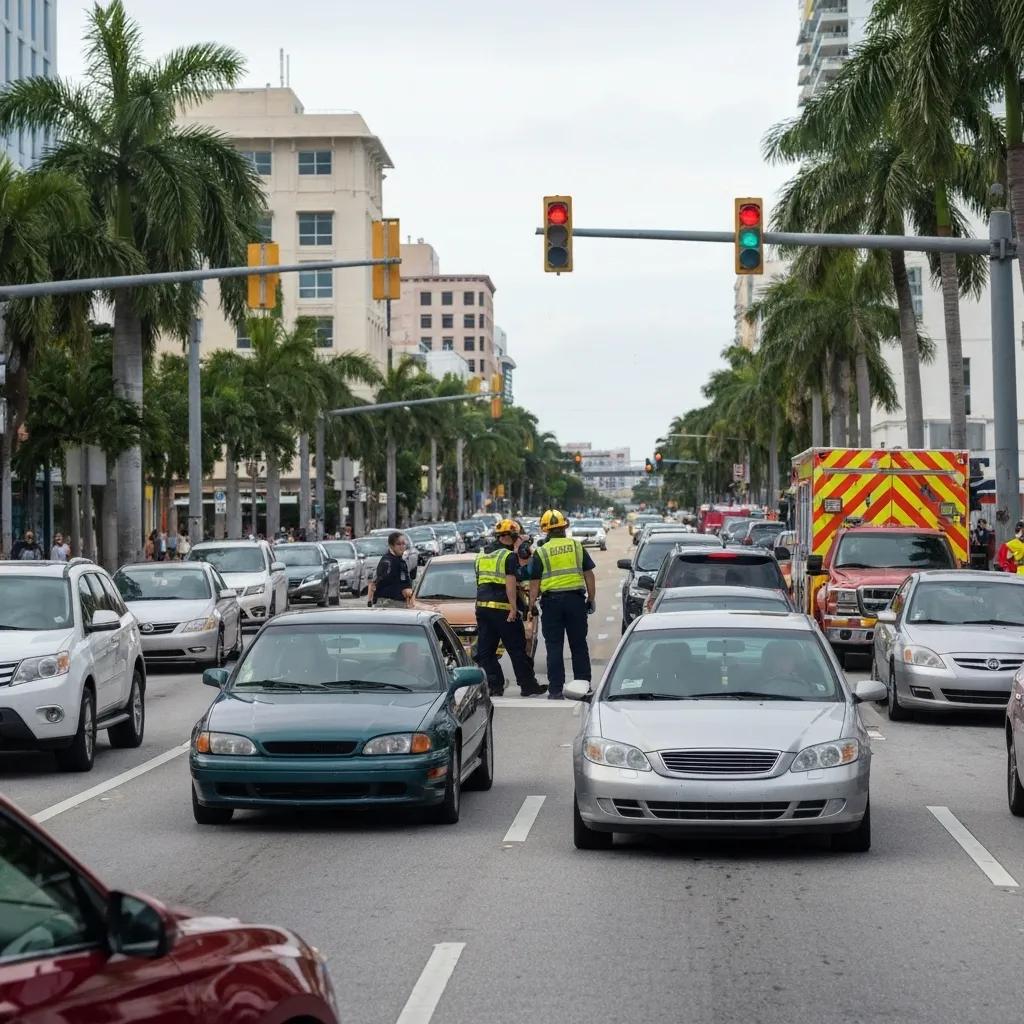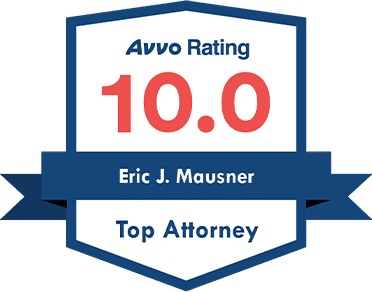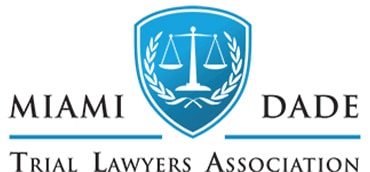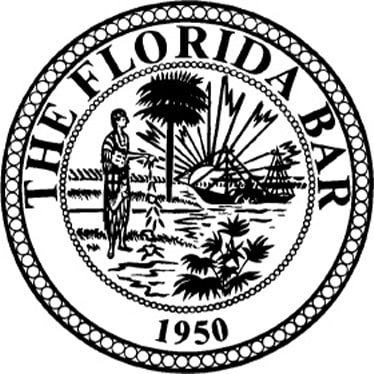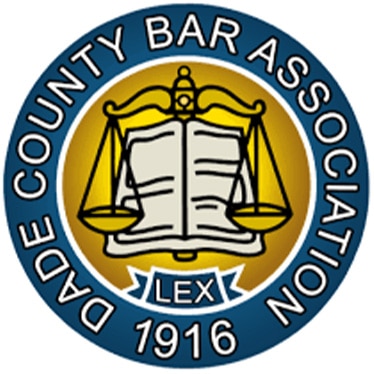- What to do right after a crash and why PIP deadlines are critical.
- How investigations and medical treatment unfold, and your attorney’s role.
- The process of demand letters, negotiations, and typical settlement timelines.
- When a lawsuit is necessary and the typical litigation schedule.
- Key deadlines, factors that influence your case, and how to manage it proactively.
- What to expect after your case is resolved, including appeals and managing your award.
At MG Injury Firm, our free consultations mean you’ll have seasoned guidance every step of the way. You can focus on healing while we expertly navigate the legal complexities.
What Are the First Steps After a Miami Car Accident?
Getting medical attention, reporting the incident, gathering evidence, and informing your insurance company are the cornerstones of a strong personal injury claim in Miami. Acting quickly protects your health and your legal rights, setting the stage for a successful outcome.
Why Is Seeing a Doctor Within 14 Days So Important for Your Claim?
Seeking medical care within Florida’s 14-day window for Personal Injury Protection (PIP) coverage is essential. It establishes a clear, documented link between the accident and your injuries, which insurers need to process your benefits. For instance, visiting an emergency room or urgent care clinic before the PIP deadline creates medical records that support both your immediate health needs and your claim for financial recovery. Prompt treatment also helps prevent long-term complications and strengthens your case by demonstrating you’ve met the no-fault law’s requirements, preparing you for the subsequent investigation and evidence gathering.
In Florida, you must seek medical treatment within 14 days of a car accident to qualify for Personal Injury Protection (PIP) benefits. If you miss this deadline, your PIP coverage could be denied. PIP is designed to cover medical expenses and lost wages regardless of who was at fault.
How and When Should You Report the Accident to Miami Authorities?
Filing a police report by calling 911 at the scene or visiting a Miami-Dade police station within 24 hours creates an official record of the incident, as required by Section 316.065 of the Florida Statutes. A police report identifies all parties involved, documents visible vehicle damage and injuries, and includes the responding officer’s observations — all critical evidence, especially when fault is contested. Reporting promptly avoids questions about the incident details and allows your attorney to easily obtain the complete investigation records needed to build your claim’s liability case.
Florida Statute Section 316.065 mandates that drivers involved in a crash resulting in injury, death, or property damage exceeding $500 must immediately notify local law enforcement. Prompt reporting ensures an official record of the incident, which is vital for establishing liability and supporting insurance claims.
What Evidence Should You Collect at the Accident Scene?
 Take photos of vehicle damage, skid marks, road signs, and the surrounding environment to preserve objective proof before it changes. Get witness names and statements right away, record the other drivers’ insurance details, and note the weather and lighting conditions.
Take photos of vehicle damage, skid marks, road signs, and the surrounding environment to preserve objective proof before it changes. Get witness names and statements right away, record the other drivers’ insurance details, and note the weather and lighting conditions.
- Vehicle Details: Capture clear photos of all angles of each vehicle involved.
- Environmental Factors: Photograph the road surface, any relevant signage, and traffic signals.
- Witness Information: Collect full names, phone numbers, and brief accounts from any witnesses.
This evidence not only helps establish fault but also provides crucial information to medical providers and insurance adjusters about the impact forces and how injuries may have occurred, supporting the next steps in your treatment and legal strategy.
When and How Should You Notify Your Insurance Company in Miami?
Inform your insurance company promptly, ideally within 24 to 48 hours, to start your PIP claim and meet your policy obligations. Submit your notice in writing, either online or by phone, include the police report number, and provide details about your injuries and any treatment received so far. Timely notification prevents potential coverage disputes and activates your PIP benefits, which can cover up to $10,000 for medical expenses and lost wages. Clear communication with adjusters also sets the stage for your attorney’s later negotiations, ensuring no one can claim surprise or non-compliance with policy terms.
How Does the Investigation and Medical Treatment Phase Progress in Miami Car Accident Cases?
During the initial 1–6 months following your accident, your claim will be developed through comprehensive medical care, diligent evidence gathering by your attorney, and ongoing communication with insurance companies to build a robust case for liability and damages.
Why Should You Hire a Miami Car Accident Attorney Early On?
Engaging legal representation soon after your accident ensures expert oversight of evidence collection, PIP claim filing, and negotiation strategies. An experienced Miami car accident lawyer will coordinate your medical appointments, obtain official police and medical records, and protect you from procedural errors that could jeopardize your compensation. This early involvement also signals to insurance companies that your claim will be pursued vigorously, often leading to quicker responses and discouraging lowball settlement offers before your injuries have reached Maximum Medical Improvement (MMI).
What Does Comprehensive Medical Treatment and Maximum Medical Improvement (MMI) Entail?
A complete care plan involves ongoing diagnostics, consultations with specialists, physical therapy, and potentially surgical procedures, all aimed at reaching MMI — the point where further medical treatment is unlikely to result in substantial improvement. This includes:
- Diagnostic Imaging: MRIs and CT scans to assess internal injuries.
- Specialist Consultations: Seeing orthopedists, neurologists, and pain management experts.
- Rehabilitation Services: Engaging in physical and occupational therapy sessions.
- MMI Assessment: A physician’s certification confirming your condition has stabilized.
Reaching MMI provides a clear benchmark for calculating future medical costs and assigning a precise value to your pain and suffering damages, which is essential for preparing your demand letter.
How Do Attorneys Gather Evidence and Conduct Investigations?
Your attorney will compile a comprehensive case file by requesting certified police reports, meticulously reviewing medical records, taking depositions from witnesses, and engaging expert professionals like accident reconstructionists or biomechanical engineers. They will:
- Secure DMV and crash reports.
- Analyze surveillance or traffic camera footage.
- Conduct sworn depositions of eyewitnesses and involved parties.
- Consult with medical and vocational experts to accurately quantify damages.
This thorough investigation solidifies arguments for liability and calculates the full extent of your economic and non-economic losses, smoothly transitioning the case toward the negotiation phase.
Get Your FREE Case Review Today
What Happens During the Demand, Negotiation, and Settlement Phase in Miami?
Between 6 and 18 months after your crash, your legal team will prepare a formal demand letter, engage in back-and-forth negotiations with insurance adjusters, and work towards a resolution that fairly compensates you for medical bills, lost income, and ongoing pain.
How Is a Demand Letter Prepared and What Key Information Does It Contain?
A demand letter clearly outlines the specifics of your case by summarizing the facts of liability, detailing your economic losses (like medical expenses and lost wages), and articulating your non-economic damages (such as pain and suffering and emotional distress). It typically includes:
Section | Content | Purpose |
Liability Summary | Date, location, vehicle details, and negligent actions documented in the police report. | Establishes the at-fault party’s responsibility. |
Medical Expenses | A comprehensive list of treatments, your MMI status, and projected future care costs. | Quantifies your economic damages. |
Lost Income Details | Pay stubs, employer statements, and calculations of lost earning capacity. | Demonstrates the need for wage replacement. |
Settlement Demand | An itemized total with a specific monetary figure based on detailed calculations. | Notifies the insurer of the expected compensation amount. |
A well-structured demand letter encourages serious negotiation and sets a reasonable starting point for settlement discussions, guiding insurers toward a well-informed counteroffer rather than a dismissive lowball bid.
How Do Insurance Companies Review and Negotiate Settlement Offers?
- Counteroffers: Adjusters will typically respond with lower offers, often citing disputes over liability or the extent of damages.
- Supporting Documentation: Your attorney will provide additional medical reports or expert analyses to counter any claims of undervaluation.
- Mediation Preparation: For complex cases, participating in private mediation can encourage insurers to present more realistic settlement figures.
This structured exchange continues until both parties reach an agreement on fair compensation or decide to proceed with litigation if a reasonable settlement cannot be achieved.
When Can You Expect to Reach a Fair Settlement in Miami?
Cases involving minor injuries often resolve within 3–6 months after reaching MMI. Moderate to severe claims typically settle between 9 and 18 months post-accident. Complex disputes involving significant policy limits or contested fault can extend beyond two years. Prompt legal representation and proactive submission of evidence can help shorten these timelines, ensuring you receive compensation without unnecessary delays.
When Is Litigation Necessary and What Is the Lawsuit Timeline in Miami Car Accident Cases?
If settlement negotiations reach an impasse, filing and pursuing a lawsuit becomes the necessary next step. Litigation typically spans 1–3 years, depending on the complexity of the discovery process, court schedules, and the overall case strategy.
When Should You File a Personal Injury Lawsuit in Miami?
A lawsuit is necessary when settlement negotiations fail to produce adequate compensation or when insurance tactics seem designed to devalue your claim. Under Florida’s two-year statute of limitations (F.S. 95.11), you must file your lawsuit within 24 months of the accident date, or you risk losing your right to seek any compensation. Filing early can also prompt insurance companies to re-engage in settlement discussions before trial, maintaining momentum toward a resolution.
Florida law generally requires personal injury lawsuits arising from car accidents to be filed within two years from the date of the incident. This deadline, as of March 24, 2023, is critical; missing it typically means forfeiting your right to seek compensation through the courts.
What Is the Discovery Process and How Long Does It Typically Take?
The discovery phase, which usually lasts 6–12 months, involves exchanging written questions (interrogatories), producing relevant documents, and conducting sworn depositions:
- Interrogatories: Written questions seeking factual information and details about damages.
- Requests for Production: Formal requests for medical records, employment documents, and accident-related evidence.
- Depositions: Sworn testimony taken from parties involved, eyewitnesses, and expert witnesses under oath.
Thorough discovery clarifies each party’s position, helps narrow the issues for trial, and facilitates realistic settlement discussions based on fully disclosed evidence.
How Do Mediation and Alternative Dispute Resolution Work Before Trial?
Before a trial can commence, courts often mandate mediation or arbitration to help reduce caseloads and encourage settlement. In mediation, a neutral third party facilitates negotiations between both sides to reach a voluntary agreement. Arbitration, if contractually agreed upon, may result in a binding decision. These processes can resolve disputes more quickly and cost-effectively than a full trial, helping to bridge differences and potentially avoid the uncertainties of a jury verdict.
What Happens During a Trial and Verdict in Miami Car Accident Lawsuits?
If settlement and mediation efforts are unsuccessful, your case will proceed to trial. During the trial, both sides will present opening statements, witnesses will testify under oath, and attorneys will introduce evidence. A jury (or a judge in a bench trial) will then deliberate and issue a verdict regarding liability and damages. Trials in Miami-Dade courts often conclude within a week for straightforward cases, but can extend to several weeks for complex liability issues or high-damage claims. A favorable verdict results in a court-ordered compensation award, after which post-trial motions or appeals may be considered.
What Are the Key Legal Deadlines and Factors That Affect Your Miami Car Accident Case Timeline?
Understanding statutory time limits, the severity of your injuries, and various procedural variables will help you anticipate potential delays or accelerations in your case’s progression.
What Are Florida’s Statute of Limitations and PIP Claim Deadlines?
Filing Deadline | Requirement | Timeframe |
PIP Medical Treatment | Seek qualifying medical care to activate PIP benefits. | Within 14 days of the accident. |
Personal Injury Lawsuit | File a lawsuit for bodily injury damages. | Within 2 years of the accident. |
Property Damage Lawsuit | File a lawsuit for vehicle damage. | Within 4 years of the accident. |
Failing to meet these deadlines generally means forfeiting your right to recover benefits or pursue legal action, making diligent calendar tracking essential to preserve your entitlements.
How Do Injury Severity, Case Complexity, and Insurance Tactics Impact Case Duration?
More severe injuries typically require extended medical treatment and expert testimony, which naturally lengthens the path to MMI. Complex liability disputes, such as those involving multiple vehicles or questions of shared fault, necessitate more in-depth investigations and prolonged depositions. Aggressive insurance tactics, like outright denial of coverage or deliberately delayed responses, can lead to additional motions and hearings, thereby extending your case timeline. Recognizing these influencing factors early allows your attorney to strategically allocate resources and maintain consistent progress toward a resolution.
How Can Court Backlogs and Local Miami Procedures Affect Your Case?
Miami-Dade’s consistently busy civil court docket can introduce scheduling delays for hearings, mediation sessions, and trial dates. Judicial rotations and the prioritization of emergency calendars often lead to rescheduling, which can lengthen the litigation phase. However, MG Injury Firm’s familiarity with local courthouse protocols and established relationships with court staff enable us to secure timely settings and minimize procedural delays that could otherwise hinder your progress toward a settlement or verdict.
Contact us today for your free & confidential case review. Our team will help you get the compensation that you deserve.
How Can You Proactively Manage Your Miami Car Accident Case to Expedite Resolution?
Active client involvement combined with strategic legal guidance can accelerate key milestones and strengthen your negotiating position with insurance companies.
What Steps Can You Take to Bolster Your Claim Early On?
Gathering comprehensive medical documentation, maintaining a detailed journal of your pain and recovery progress, and keeping all repair invoices for vehicle damage provide clear evidence of your losses and the timeline of your suffering. Adhering to all medical appointments and promptly submitting any requested records can reduce objections from insurers and foster more favorable early settlement discussions.
How Does Hiring an Attorney Help Accelerate Settlement Negotiations?
An attorney’s direct communication with insurance adjusters streamlines the exchange of documents, preempts lowball settlement tactics, and often leads to professional courtesy adjustments that represented claims typically receive. The leverage provided by legal representation, such as presenting expert reports and initiating formal discovery requests, frequently compels insurance companies to engage in good-faith negotiations more readily than they would with unrepresented claimants.
What Actions Should You Avoid That Could Potentially Delay Your Case?
Missing medical appointments, posting about your injuries on social media, or providing recorded statements to insurance adjusters without legal counsel present can open the door for insurers to challenge your credibility or the cause of your injuries. Agreeing to a premature settlement or signing release forms before you’ve fully recovered can forfeit your rights to future benefits and often triggers lengthy disputes that delay final compensation.
What Should You Expect After Reaching a Settlement or Verdict in Miami?
Once your case is resolved, either through an agreed-upon settlement or a jury’s decision, you will move into the payment and post-judgment phases, which finalize your recovery.
How Long Does It Typically Take to Receive Your Settlement Check in Florida?
After settlement terms are agreed upon, insurance companies generally issue payment within 20–30 days. Once the release agreement is signed, your attorney will coordinate the resolution of any outstanding liens — such as those for medical providers or PIP reimbursements — and then disburse your net award, typically within a month of the final signatures.
What Are Your Options If You Need to Appeal a Verdict?
If either party disagrees with the trial outcome, an appeal can extend your case timeline by 6–24 months as higher courts review procedural or legal issues. Appeals require filing a notice of appeal within 30 days of the verdict and submitting detailed briefs before oral arguments are heard. While appeals can delay final compensation, they offer a pathway to correct significant trial errors or adjust award amounts when substantial legal grounds exist.
How Can You Best Utilize Your Compensation to Support Recovery and Future Well-being?
Strategically allocating your settlement proceeds toward ongoing medical care, rehabilitation services, necessary adaptive equipment, or vocational retraining can maximize your long-term functional capacity and financial security. Setting aside funds for future contingencies, such as potential additional surgeries or ongoing assistive services, ensures that financial resources are available for unforeseen needs, promoting sustained physical and economic resilience.
Victims who understand each phase, from immediate actions and thorough investigation to strategic negotiation, litigation readiness, and post-resolution planning, can transform uncertainty into confidence. Ready to explore your options and secure the compensation you deserve? Contact Mausner Group Injury Firm for a free consultation and let our Miami car accident specialists guide you from the crash site to a full recovery.
Call Mausner Group today
Free consultation available statewide
Offices in Miami, Doral, and Palmetto Bay
600+ 5-Star Google Reviews
Last Updated Monday, September 22nd, 2025

